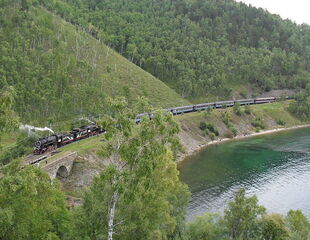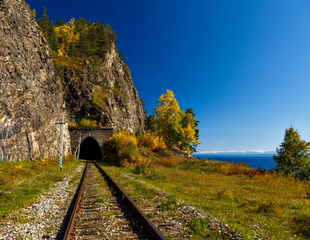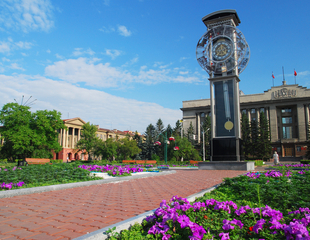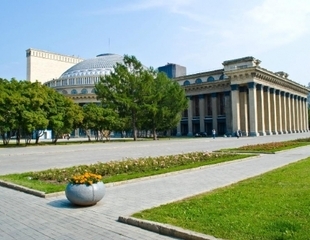Some people think that Transsib means the way that connects Ural with Far East and goes through Siberia (Trans-Siberian). But in reality it's different the contradiction comes from the name that English travellers gave to it — «Trans-Siberian Railway» instead of «Great Siberian Way» (this would be the litteral translation from Russian) but then this name have been rooted in Russian language.
And now the term Transsib means the way, that connects Center and Pacific Ocean, Moscow and Vladivostok and in broader meaning — ports of West with Russian capital and ways to Europe (Moscow, Saint Petersburg, Brest, Kaliningrad) with ports of the East and ways to Asia. Transsib — is the road that gave an impulse to the settling and developing of eastern areas of Russia and involvment of them into economy of the other part of great country.
Nowadays Jaroslavskiy train station in Moscow is Transsib's starting point and a final point of the way is Vladivostok train station. But not always it was so. Before the middle of the 20th century Kazanskiy train station was the main gate to Siberia and Far East and Kursko-Nizhegorodskiy (nowadays Kurskiy) train station of Moscow was located at very beginning of Transsib (beginning of 20th century). It's also important to mention that before the October revolution Moscow train station of Saint Petersburg, which was the capital of Russian Empire at that time was considered to be the starting point of the Great Siberian Way. Vladivostok also wasn`t considered to be the permanent final point, for some time (from 90's of 19th century till the crucial land battles of Russian-Japanese war in 1904-1905), contemporaries considered naval fortress and town of Port Arthur, which is located on the shore of East-Chinese Sea on the Lao Dun peninnsula, rented by Russian Empire from China to be the end of the Great Road.
Grand laying took place of the 19th century of May 1891 near Vladivostok and in the presence of prince Nikolay Aleksandrovitch (Emperor Nikolay The Second in future).
But actually costruction started a little bit earlier at the beginning of March 1891 with building of the railway from Miass to Chelyabinsk.
The regular communication between the Empire's capital — Saint-Petersburg and ports in the Pacific ocean — Vladivostok and Dalniy by the railroad was established in July 1903 when the East-Chinese Sea railway that comes through Manchuria was put to operation and began to function routinely. But still there was a break in the railway. Trains were transported through the Baykal Lke by the special ferry boat.
The continued railway between Saint Petersburg and Vladivostok appeared after the finishing of Circum-Baykal railway construction (18th Septemper of 1904). A yer after it was put in regular operation as a part of The Great Siberian Way. And regular passenger trains for a first time in history have an ability to follow rails from the Atlantic (Western Europe) to the Pacific ocean (Vladivostok) without using of any ferry crossings.
The final step in history of Transsib's construction was putting in the operation the bridge over Amur river near Khabarovsk and beginning of train communication over the Amur.










